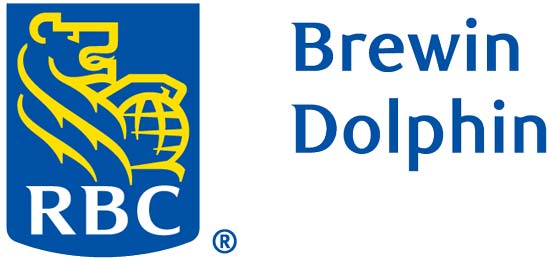This month:
Expert investment views:
The increasing attractiveness of government bonds is highlighted, along with the resurgence of bonds as a portfolio diversifier generally
Investors are warned of the need for real expertise when attempting to read the ‘policy tea leaves’ of China
The headwinds which could hamper an economic recovery are highlighted, including political flashpoints
Featuring this month’s experts:



1. Are government bonds now worth a closer look?
For government bonds to perform better, it is crucial that inflation reduces from its current lofty levels. Encouragingly, since the recent peak in global inflation, government bond yields have stabilised. While Inflation is still high, it has fallen since late-2022 and we expect this trend to continue in the second half of 2023, driven by falling energy prices. This is expected to be supportive for bond markets in the remainder of 2023.
A more positive inflation outlook is likely to bring central banks closer to pausing interest rate rises. Historically, as was the case in the seven previous rate tightening cycles, a pause in rate rises has often coincided with a peak in the US 10-year Treasury yield.
For government bonds to perform better, it is crucial that inflation reduces from its current lofty levels. Encouragingly, since the recent peak in global inflation, government bond yields have stabilised
Bond markets have typically been negatively correlated to equities, especially during sharp sell-offs. Therefore, including government bonds in an investment portfolio has historically been a sensible way to diversify and reduce risk. However, this relationship broke down last year as both bonds and equities suffered notable losses. Further losses in 2023 mean bond valuations are now viewed as considerably more attractive and should allow bonds to regain their risk diversifying role in investment portfolios.
Recent aggressive interest rate hikes have increased fears of a recession, an economic backdrop where bonds are better suited to protecting investors’ capital. For example, in a recessionary environment where US 10-year bond yields were to fall by 300 basis points, their total return would be over 25%. At the same time, equity valuations might be challenged by a weaker earnings outlook.

Colin MacKenzie
Director, Investment Management at Arbuthnot Latham & Co., Limited
2. Reading the China policy tea leaves is getting more difficult
Gauging and understanding China’s economy as a foreign investor is not easy. The country is undergoing a structural and economic transition. Its economy is state directed, but the private sector is crucial in driving its prosperity. A fine balance needs to be struck between upholding the Party’s communist values and sustainable, high-quality growth. Generating organic growth will get increasingly difficult, with debt, demographics, slowing external growth and geopolitics being headwinds in the background. When so many issues are at stake, policy dynamics can be less clear cut.
The actions by Chinese policymakers can sometimes be contradictory. President Xi Jinping urged countries to support global supply chains, but imposed export restrictions on two minerals, germanium and gallium, in retaliation for US export restrictions on high-end semiconductors to China. The authorities also expressed a willingness to support the economy, but stopped buying bonds issued by local government financing vehicles (LGFVs) traded in the Shanghai Free Trade Zone. This is likely to put further strain on local governments who are seeking funding for their infrastructure and business projects.
We need to have humility when trying to read what is on the mind of Chinese officials, although some observations can be drawn from the pattern of action. China will continue to pursue a tit-for-tat policy on foreign relations and trade policy. A tight grip on the private sector remains and China will act when its political interest is under threat, even if these actions mean economic damage.

Janet Mui
Head of Market Analysis at RBC Brewin Dolphin

Top Tip

Lee Goggin
Co-Founder
3. Headwinds which could hamper a recovery
The factors which could impede an economic recovery are clear. Perhaps the most important is the lagged effect of monetary tightening. Central banks have raised interest rates significantly, while banks have been tightening lending standards. It may be that the effect of this has only partially worked its way through the system. That said, many companies have already refinanced at lower rates, and profit margins are high. This mitigates the impact of rising interest rates and improves the capacity of companies to deal with them.
It is clear that inflation is not yet back in the box, although the US is much further along the road. Pent-up demand for areas such as holidays and leisure activities is driving demand for services and inflation. Wage growth in the UK has been moving sharply higher. The greatest issue for the Bank of England governor Andrew Bailey is wage rises risk becoming entrenched.
While the geopolitical risk indicators have come down from their highs, there are plenty of political flashpoints over the next 12 months, from NATO’s summit in Lithuania, to the BRICS leaders’ summit in Cape Town
The final headwind is the ongoing geopolitical tensions. While the geopolitical risk indicators have come down from their highs, there are plenty of political flashpoints over the next 12 months, from NATO’s summit in Lithuania, to the BRICS leaders’ summit in Cape Town. There are presidential elections in Taiwan and US electioneering will start in earnest in the last quarter of 2023.
Nevertheless, even with these headwinds in mind, we believe markets are breaking the bad news cycle. Recession, if it comes, is likely to be weak. AI investment could drive markets forward. Asia has some exciting opportunities and yields in the bond market now look appealing. We are hopeful that the second half of the year should bring greater clarity – on inflation, on interest rates, and on the path ahead for the global economy.

Daniel Casali
Investment Strategist, Investment Management, at Evelyn Partners
Important information
The investment strategy and financial planning explanations of this piece are for informational purposes only, may represent only one view, and are not intended in any way as financial or investment advice. Any comment on specific securities should not be interpreted as investment research or advice, solicitation or recommendations to buy or sell a particular security.
We always advise consultation with a professional before making any investment and financial planning decisions.
Always remember that investing involves risk and the value of investments may fall as well as rise. Past performance should not be seen as a guarantee of future returns.
Find the Right
Wealth Manager -
in Under 3 Minutes
Start your free search
Join thousands of individuals who've used our tool to find trusted, FCA-regulated advisers to maximise their wealth.
- No fees, no obligation
- Private & secure matching in minutes
- Trusted since 2012 by thousands of clients






